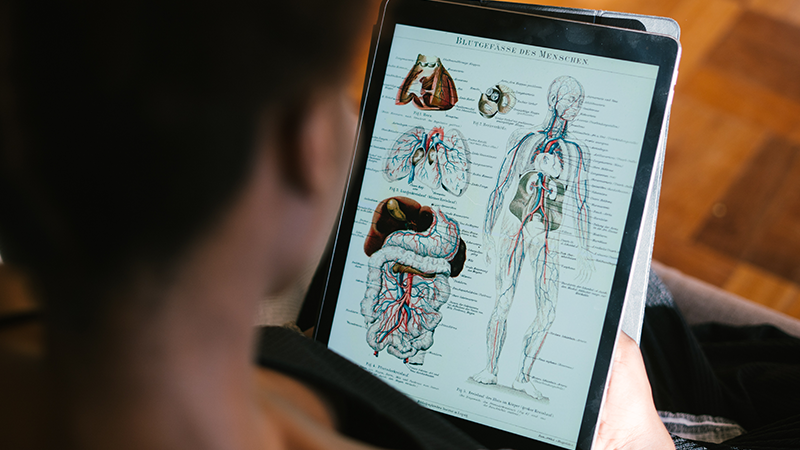Naturopathic medicine has always known the true importance of gut health in attaining optimal well-being with the father of natural medicine, Hippocrates born in 460BC stating that “all disease begins in the gut”. Fortunately, modern medicine has gone from ridiculing this philosophy to now understanding the enormous significance of gut health on both physical and mental health. It is exciting that recent scientific research now backs up the importance of correcting digestive disturbances.
So, What is the Importance of Gut Health?
Your gut and digestive system is one of the most critical systems in the human body and when it is not in peak condition and is malfunctioning, your body cannot absorb important nutrients. In fact, it often absorbs what it should be excreting such as toxins and waste products and excretes or can’t absorb what it should be absorbing.
But it is a much bigger issue than just nutrients. The health of your digestive system is closely aligned to many other systems in your body and can have huge impacts on your immune system, nervous system, hormones, sleep, allergies, chronic fatigue, skin conditions, quality of life and more.
Supporting people with chronic gut issues is a common occurrence in my naturopathic practice.
Having personally experienced many years of Irritable Bowel syndrome (IBS) and postnasal drip due to undiagnosed food intolerances since childhood, my career as a naturopath was born out of my passion and determination to understand the drivers of gut dysfunction.

What Are the Drivers of Gut Dysfunction?
Sadly, the causes can often be multi-faceted which is why my initial consultation takes 90 minutes or more. Understanding each person’s unique set of circumstances includes gathering information around genetic history. You would be surprised how many people have relatives with digestive issues. Diagnosed conditions in families can provide valuable information when understanding the key drivers of your specific gut problems. Past medical history is also assessed such as childhood health issues, infections, allergies, antibiotic use and more. I even go as far as to look at whether someone was born prematurely, vaginally or by caesarean and if they were breastfed. These things all matter for the health of the gut microflora (microbiome) which is your family of healthy bacteria and other beneficial species that reside in your gut. My past blog describes the important role they play, you can check it out here.
Psychological factors are also assessed such as the amount of stress and anxiety in your life and how your gut reacts. Sadly, stress can turn off digestion and is a major contributor to symptoms for some people. Reviewing stool health is also an important part of the picture as is the motility of your digestive tract which is how well food is moved through your gut. Does it speed through too quickly or does it stagnate causing food to putrefy, feeding bad bacteria and causing excess gas and reflux?
Is there an issue with stomach acid production, digestive enzymes or bile from the gallbladder meaning that food can’t be broken down and absorbed properly?
Is there an infection or a history of antibiotic use which has led to the reduction of good bacteria and the growth of pathogenic or unfavourable species? This is very important to understand.
Inflammation in the gut can also be a huge contributor to annoying symptoms especially after years of constipation, diarrhoea, food intolerances, unbalanced gut bacteria or reflux as an example. This inflammation can cause damage to the gut lining, a term known as “intestinal permeability or “Leaky gut” due to the damaging chemicals that are released.
Looking into the interaction between foods eaten that may be triggering gut symptoms is also part of the detailed assessment. With food intolerances taking up to 3 days or so to show up in symptoms, identifying the culprits can be tricky. Allergies are much easier to pinpoint as the effect is immediate. Dairy, gluten, FODMAP’s (particular group of sugars in some of our foods), high histamine foods, preservatives and more are monitored.
Working with your General Practitioner and excluding gastrointestinal disorders is also necessary for some people and reviewing all medications and supplements that may be causing gut reactions is also part of the equation.
I can’t tell you how many “sensitive gut”” people have diarrhoea due to taking the wrong magnesium for example.
Hands down one of the most crucial “game changers” is your daily diet. Huge changes can be made for most people with some strategic changes here.
As you can see, the job of a naturopath to understand the causes of digestive issues is not a simple task, especially when it has been chronic for many years.
Finding and fixing the causes takes commitment from both the naturopath and the client without a doubt.
Here are common symptoms and causes of gut issues with many people having numerous conditions that overlap.

Common Symptoms of an Unhealthy Gut
- Bloating
- Excessive gas
- Abdominal cramping and pain
- Diarrhoea
- Constipation
- A combination of Cramping & diarrhoea
- Nausea
- Reflux
- Heart Burn/indigestion
- Belching
- Reactions to certain foods and drinks
- Chronic vitamin/mineral deficiency
- Chronic fatigue and brain fog
- Chronic skin disorders and sinus issues, hay fever
- Autoimmune conditions

Common Causes of Gut Issues
- Irritable Bowel Syndrome (IBS)
- An imbalance between “good” and “bad” microflora in the gut. This is called dysbiosis.
- Infection from bacteria, viral, fungal (H Pylori, Candida)
- Small intestinal bacterial overgrowth (SIBO)
- Food intolerances or allergies: celiac disease, lactose intolerance, FODMAP sensitivity, non-celiac gluten sensitivity and more.
- Inflammatory Bowel disease: Crohn’s Disease, Ulcerative Colitis, Diverticulitis
- Inadequate stomach acid or digestive enzyme production or bile due to underperforming pancreas or gallbladder
- Fat malabsorption
- Peptic Ulcers
- Endometriosis
- Intestinal Permeability “Leaky Gut”
- Inappropriate diet

Having a lifetime of gut issues can have a huge effect on quality of life. I know this from first-hand experience and whilst the commitment to heal your gut may seem like an enormous task after reading this blog, having a balanced digestive system is life changing. Mood, sleep, energy, and the elimination of revolting symptoms makes life a different experience.
Please reach out if you need support in healing your gut symptoms. Naturopaths are extensively trained in this area and take the time to get to the bottom of what is uniquely happening to you.
References
Burns, G., Pryor, J., Holtmann, G., Walker, M. M., Talley, N. J., & Keely, S. (2019). Immune Activation in Functional Gastrointestinal Disorders. Gastroenterology & hepatology, 15(10), 539–548.
Carabotti, M., Scirocco, A., Maselli, M. A., & Severi, C. (2015). The gut-brain axis: interactions between enteric microbiota, central and enteric nervous systems. Annals of gastroenterology, 28(2), 203–209.
Steven Sandberg-Lewis, S. (2017). Functional Gastroenterology. Assessing and Addressing the Causes of Functional Gastrointestinal Disorders, second edition. Portland, OR: NCNM Press










